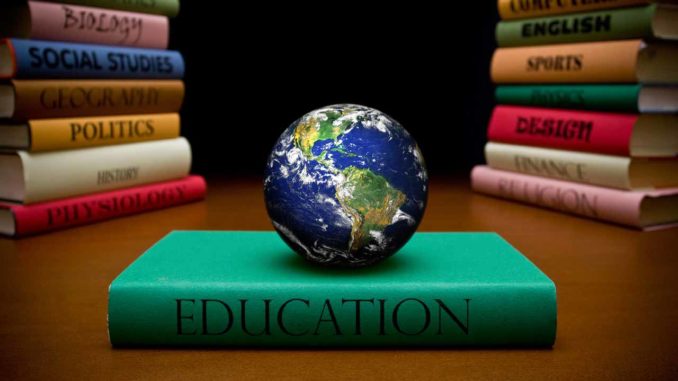
Come Tuesday, April 23, 2019, the World Book and Copyright Day will be celebrated in many countries across the world. It is an annual event organised by the United Nations Educational, Scientific and Cultural Organisation to “promote the enjoyment of books and reading…”
Every World Book and Copyright Day, we are reminded of our attitude towards reading, particularly among the young ones. It is needless to say that the reading culture in Nigeria is fast disappearing. This is, perhaps, due to distractions caused by television, social media and the Internet. These devices and platforms are not unwholesome in themselves, but many Nigerians, especially the youth, are hardly disciplined in the way they use them.
While it is great to be tech-savvy, it is also important to be self-controlled. Interestingly, we are in the days of eBooks and there is a lot of information, and ideas existing online. This means there is no room for excuses. It is either you read online or offline, although some people prefer to have physical contact with books.
Reading enlightens and expands capacity for creativity and innovation. By all means, we should encourage the young ones to read by rewarding their efforts until reading becomes a habit and something they enjoy doing. The idea is to “catch them young”.
Going and growing through primary school, this writer still recalls with delight how he read books, such as Sugar Girl by Kola Onadipe, Eze Goes to School by Onuora Nzekwu, Chike and the River by Chinua Achebe, The Concubine by Elechi Amadi, The Bottled Leopard by Chukwuemeka Ike, and many others.
It is my desire that Nigeria, the world’s most populous black nation, becomes a reading republic where the wonders of books are appreciated. Growing up, I read many books that helped to nourish my mind with knowledge, stretch my imagination, instill moral values and inspire me to pursue my dreams.
While reading a book during my national youth service in Anambra State, I got an inspiration to write my first book which I titled, “Invest your youthful years” to encourage young people to discover, develop and unleash their potential.
Reading is connected to thinking, writing, researching, public speaking and change. We need to encourage people to read wide, of course, on issues that interest them and affect society. Many young people read only their textbooks, not to seek understanding, but to pass their examinations. At the end of the day, they graduate with certificates, but lack real knowledge.
While the NLNG-funded Nigeria Prize for Literature and the Fidelity Bank Creative Writing Workshop easily come to mind, the private sector needs to invest more in literary competitions and initiatives that can make reading and research exciting and rewarding.
We need ultramodern libraries that will be attractive, comfortable and with up-to-date books, e-books, audio books and all materials that can enhance growth. The saying “If you want to hide something from an Africa, hide it in a book” might be insulting to many Nigerians, but, sadly, it is a true reflection of our attitude to intellectual matters. Together, we can change this negative perception. By ‘we’, I am referring to every citizen of this country, including parents, teachers, religious leaders, celebrities, government at all levels, the media and opinion leaders.
Politically speaking, we became a republic in 1963. Intellectually speaking, I am not sure we are a “republic” yet, not because we do not have what it takes to be one. We need to ask ourselves how much we have contributed to the world, in terms of ideas, inventions and innovations. How many quality “Made-in-Nigeria” products have we blessed the world with? Is our level of performance traceable to how much we value education, books and reading? What percentage of our budget goes to education, compared to our neighbouring countries? Apart from other extraneous factors, the socio-economic progress of any nation- in this information age largely depends on the quality and relevance of education received by its citizens coupled with their attitude to reading.
Idowu Omisore, a youth development advocate, wrote in from Lagos
END

Be the first to comment